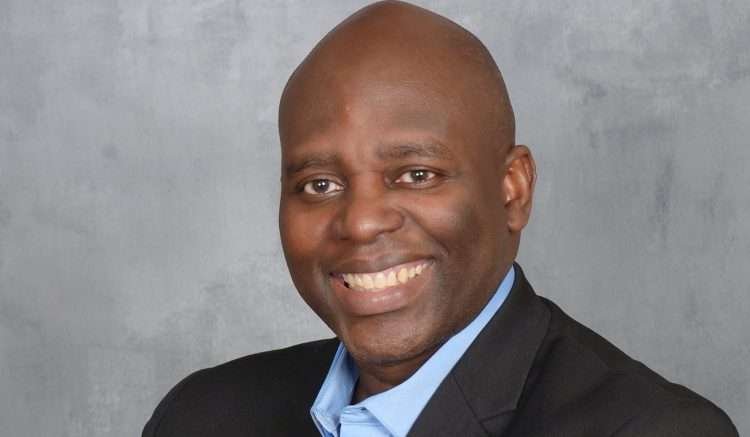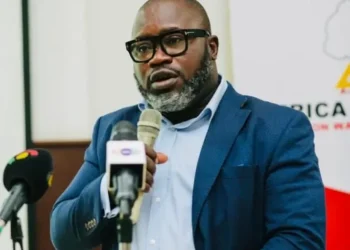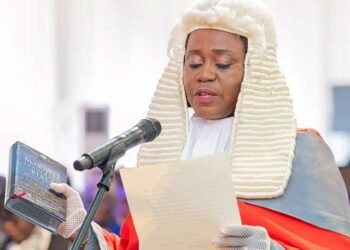In an analysis of the state of the fight against illegal mining (galamsey) in Ghana, political scientist Dr. John Osae Kwapong raised significant concerns regarding the security of media persons involved in exposing the practice.
He referenced the experience of journalist Erastus Asare Donkor, who continued to put himself at great personal risk to document the devastating effects of galamsey, despite the dangers involved.
Dr. Kwapong particularly highlighted how Erastus’s courage in navigating hazardous environments on galamsey underscored the importance of protecting journalists engaged in such dangerous work as well as as government’s role in the fight against illegal mining. He noted; “No, as of yesterday when I was checking the news,” indicating that the government has not yet spoken on the matter as urgent as it behooves.
“Given the nature of this fight against Galamsey and the risk that media persons are going throught to highlight the issue it raisies that othe part of the fight againts Galamsey which is the security of those who are even trying to shine light on that.”
Dr. John Osae Kwapong Political Scientist
He commended the journalist for his bravery, even as he faced the risks of being kidnapped, harmed, or worse while doing his job. This situation reflects a broader issue with the state’s response to safeguarding individuals dedicated to combating galamsey.
Dr. Kwapong acknowledged that the presidency and the Ghana Police Service have remained largely silent on the matter, an omission that raises concern.
“… That to me is what is commendable about the work [Erastus] is doing, knowing all of the risk and still you know, put in himself and his team out there, just to bring attention to this issue that the consequennces would not discriminate against citizens.”
Dr. John Osae Kwapong Political Scientist
He stressed that such silence undermined the efforts of those risking their lives to combat galamsey, which is a menace affecting every citizen. ” Everybody would suffer if Galamsey ends up wrecking the kind of havoc that we are already seeing” Dr. Kwapong said, warning that both rich and poor will suffer the effects of environmental degradation and polluted water sources.
Challenges of Free SHS and Public Concerns
Dr. Kwapong also touched on the implementation challenges of the Free Senior High School (SHS) policy, pointing out a recent statement by Dr. Opoku Prempeh also known as NAPO acknowledging these difficulties.
“We do not and cannot pretend that challenges remain. They do, But we will continue to confront them boldly and honestly. No challenge is insurmountable.”
Dr. Opoku Prempeh NAPO
“The NCCE report yesterday showed that education emerged as the number one ranked issue on the minds of voters,” Dr. Kwapong observed, noting that the Free SHS policy’s challenges, particularly its implementation, have become a pressing issue for the public.
“The issue is not really [about] who is against or for Free SHS. There is a recognition that, yes it is a good policy, but its implementation has come with challenges and those challenges must be addressed.’’
Dr. John Osae Kwapong Political Scientist
Balancing the Three Branches of Government

Dr. Kwapong further explored the delicate balance of power of government including the —executive, legislative, and judiciary—in light of a recent legal interpretation of Article 97(1)(g) of the 1992 Constitution, which pertains to the conduct of Members of Parliament (MPs).
“Eventually, we have to find a way to come out of this, in such a way that each of these three co-equal branches of government respects each other. That respect is not compromised, [and] that independence is not compromised.’’
Dr. John Osae Kwapong Political Scientist
He emphasized that the court’s decision must be careful not to encroach on the legislative powers of Parliament.
“My hope is that whichever way the court comes down on those provisions, it will do so in such a way that, it doesn’t touch on parliamentary procedures and how Parliament goes about its business.”
Dr. John Osae Kwapong Political Scientist
Dr. Kwapong expressed the need for a delicate balance that respects the judiciary’s role as the interpreter of the Constitution without undermining Parliament’s autonomy.
“It has to find a way to make that separation so that you preserve the independence of Parliament, allowing it to be masters of their own domain [while] also asserting your prerogative as the highest court of the land.’’
Dr. John Osae Kwapong Political Scientist
Dr. Kwapong’s commentary reflected the nuanced challenges Ghana faces in its governance, policy implementation, and fight against illegal mining. From the risks journalists face in exposing galamsey to the public’s concerns over Free SHS implementation, and the complex balance between the executive, legislative, and judicial branches, it is clear that addressing these issues requires honesty, boldness, and a commitment to respecting institutional independence. He emphasized; “At the end of the day, our institutions still remain co-equal branches of government.”
His emphasis urged not only the state but also civil society and the media to continue advocating for reforms that will address the root causes of these issues, ensuring that Ghana’s democratic structures remain strong and responsive to the needs of its citizens.
READ ALSO; Nadia Buari Narrates Story Behind Character Name ‘Beyonce’























